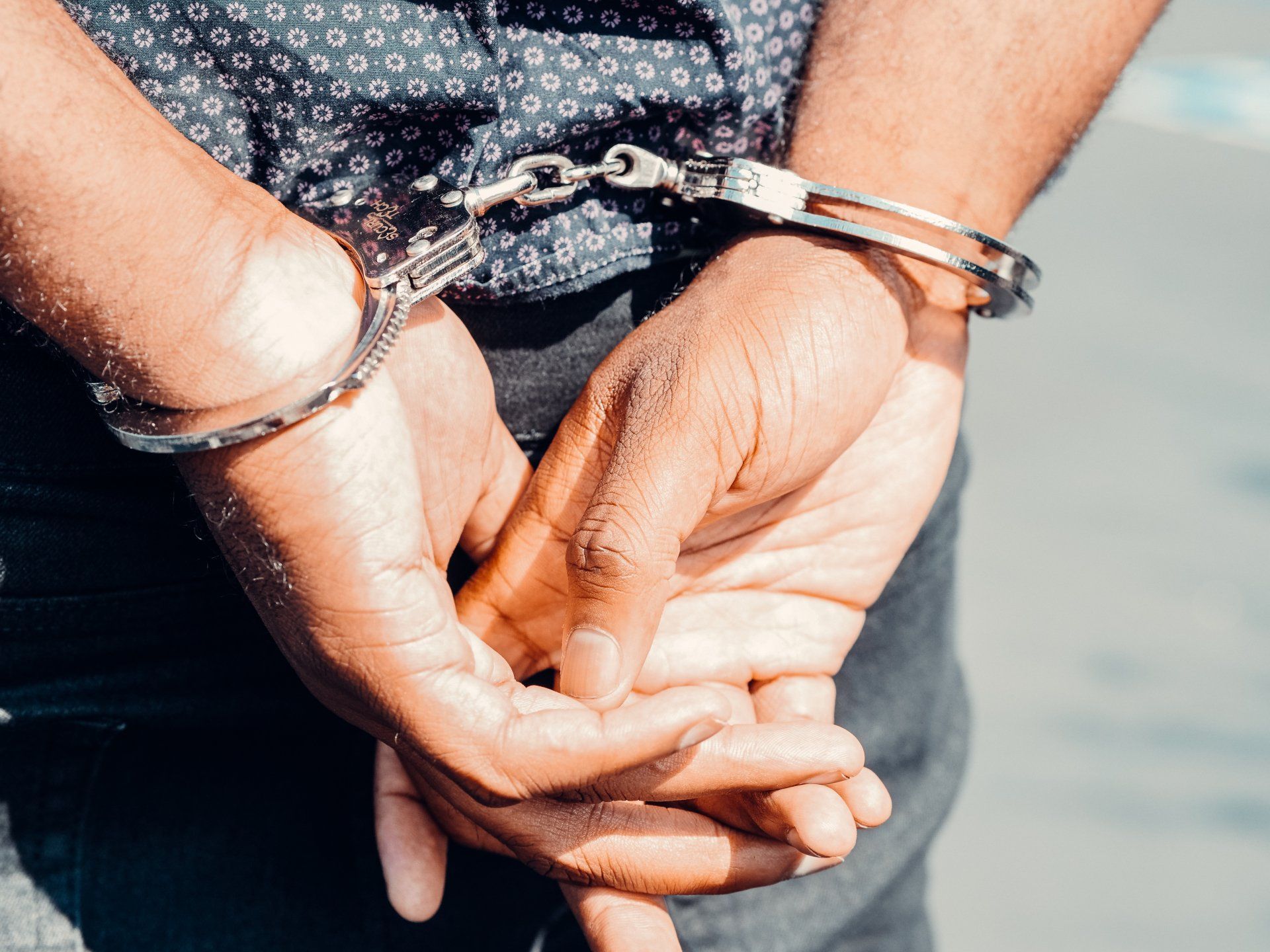Contact Us
Phone: 210-224-4242
Location
9901 IH-10 W Access Road
Ste 250
San Antonio, TX 78230
Hours
- Mon - Sun
- Open 24 Hours
Call Now 24/7: 210-224-4242
10 things that I learned from smart attorneys for picking a jury
10 things that I learned from smart attorneys for picking a jury
1. Confidence
Whenever you stand up, stand up like the courtroom is your backyard and you are the expert that will answer all their questions. This requires you to do several things. First, know the law and facts cold. Secondly, dress the part. Wear a nice suit so your first impression is one of class. Also, I like to start off telling the panel what everybody in the courtroom does. This is your party be a good host. For instance I go to the court reporter and state’ “Everything we say will be recorded by Mrs. Jones.” Then I go to the witness’ stand explaining this is where testimony will come from. Then explain that six, or twelve, of you will sit here and be the judges of credibility, which leads to later points. Tell them of the Judge’s role. Point to the bailiff and say Deputy Smith here will not arrest you but is required to keep order. So all we ask is that you follow your first oath and tell the truth. If the coordinator is there, introduce her and state that those who are selected will take a second oath from them to follow the law. That is why we are doing this now is to see who can follow the law, so let us bridge into important aspects of the law.
2. Presumption of innocence
This and the next two points go hand and in hand and are vital to an open minded, informed jury. Therefore, the points will be discussed here together. This is the hardest part of our jobs because most of the venire men and women already have it in their minds that your client is guilty or they are uninformed of what the law requires of them.
i. Thus, start with the premise that your client is presumed innocent. In most cases that is the only presumption that the jury will have. Our system of justice requires that this is the starting point. This is not the natural presumption that we use in our daily lives. I always use my daughter as an example. If she comes home with a bad grade I assume she did not prepare for the test and she has the burden of proving herself innocent. Here, it is the opposite. Our clients are presumed innocent and it is the states burden to prove that our client is guilty beyond a reasonable doubt. Sometimes I like to get this point across by asking the potential jurors to look at my client and state out loud, “I presume that you are innocent and it is up to the state to prove that you are guilty beyond a reasonable doubt.”
ii. This leads to the next point, my client’s right not to testify. You should have an idea at this time as to whether your client has determined to testify or not. If they are going to testify, I would spend less time here and spend it on something more germane. If you believe they are not, then this is another critical juncture where you need to remove potential jurors for cause. I like to begin by stating that the state has the burden and we do not have to do anything including putting on any witnesses, such as my client. We could just sit there and watch the show without saying a word. I would absolutely not stop there and continue to talk about why a person might not testify. There are many other reasons not to testify: public speaking, on advice of attorney – we listen to our doctor, not fully understanding the English language, and being grilled or tricked by a trained prosecutor are just a few reasons why not to take the stand. Some people just require your client to testify or hold it against them if they did not testify. Identify these people, thank them for their honesty and be ready to strike for cause.
iii. Explain Beyond a Reasonable Doubt to the panel. I believe that this is one of the few advantages we have in trial. I like Ernest Acevedo’s method and I admittedly stole this from him although many good attorneys have similar methods. Admit that we cannot give a definition of Beyond a Reasonable Doubt that the legislature in their wisdom has decided not to give you a definition. However we can talk about other burdens. Using the dividing bar that separates the jury box from the rest of the courtroom, walk up there and say, “Pretend this is a bar of certainty, on one end we have zero percent certainty and on the other end you are one hundred percent certain.” Starting at the low end point of uncertainty you have a scintilla of evidence. This is where it is something more than a gut feeling. Then move a little bit further down and point and say that next is Reasonable Suspicion. This is what it takes an officer to detain you. An officer must articulate specific facts that makes them believe that someone has or is about to commit a crime. Then move a little bit farther and state the next burden is Probable cause. This is what it takes for an officer to arrest you. Then point to the halfway point of the bar and say the next burden is preponderance of evidence. We have all seen Lady Justice holding the scales. To tip the scales it takes fifty percent plus something more. This is what it takes in civil court if one person sued another for money. This is where people get awarded millions of dollars. Obviously, you would want to see a lot of evidence before somebody loses their life savings. Moving down the bar point generally and explain the next burden is Clear and Convincing evidence. I like to ask the panel who has children. Then ask would they expect a lot of evidence for their parental rights to be terminated. Most people would agree. This is what the standard is to have the state terminate your rights to your children or to commit somebody involuntarily into a state hospital. This definition is a firm belief that the accusation to be proven is true. Guess what BRD is past that. By this time you are at the end of the bar. Look at the panel and ask who here thinks that the burden is too high.
3. Right not to testify
a. See 2
4. Beyond a Reasonable Doubt
a. See 2
5. In Chorus now, “NOT GUILTY”
Now that we have informed the Jury about the state’s burden of Beyond a Reasonable Doubt, we need to test the jury and at the same time get them used to saying “Not Guilty.” First, ask if the Judge made me sit down right now and you had to come back with a verdict immediately what would your verdict be; guilty, not guilty, or I do not know. Ask them how many think guilty raise their hands, then so forth with not guilty or do not know. The correct answer of course is not guilty because the state has not proved anything yet. So after you explain it ask them again. Now that we have them saying not guilty, do not stop. Go to the bar of certainty and ask if they believed your client committed the allegation by a scintilla of the evidence but nothing more at the end of the trial then what would their verdict be. I will ask until I get everybody to say not guilty, but I will look at the panel to see who is saying it reluctantly. Then moving down the bar I go through all the burdens and get the panel to say not guilty for all of them. This is decisive in most of our cases because there may be some evidence against our clients, but that is not enough for a conviction.
6. You Alone Judge the Credibility of the Witnesses.
Let the panel know that one of their principal jobs is to judge the credibility of the witnesses. In fact, that is their job exclusively. I sometimes ask if it would be fair if an officer had the ability to arrest a person, convict them, and sentence them right there at that moment. I like the movie Judge Dredd as an example. Most people would agree that would not be a very fair system. This is why we need them. To prevent that system of injustice we need fair and impartial people, free from bias, determining what is believable. That is why they can believe all, none, or some of a witness’ testimony. I do not stop there. They need to understand that there is a difference between what they hear and what is believable. I take the stand and say, “Mrs. Jones I think you are an alien from Mars.” Now the Judge or prosecutor did not jump up and say I cannot say that. Thus, what I said was admissible, but to Mrs. Jones and to the rest of the panel it is not believable. I like to go a step further and say that I anticipate that somebody will take this stand look at the jury in the eyes and say they believe my client did the allegation. That alone does not make their statement true.
7. SET THE TABLE – it is your backyard party
This is your backyard party so let your guests know what to expect. This is a case to case concept so be adaptive. Hopefully, the prosecution’s case has some weaknesses and this is the time to plant those seeds. For instance, a lot of our cases are Driving while Intoxicated and a lot of the times the arresting peace officer has not followed the NHTSA guidelines. Therefore, I will ask the jury panel if they have heard of kids taking a standardized test to move into the next grade level, which is, all the kids in Texas were given the same test in the same manner. Then I ask to pretend that your kid failed this test. At this point I tailor my questions to the facts of the case. For example, if an officer counted against your client some cue of intoxication such as holding his hand out for balance and on a video it shows your client with their hands down, I will ask the panel would it be fair if the teacher counted points against the venire person’s child for a mistake they did not make and would that tend to show some bias. Hitting the point further, I would follow up by stating that “if all the kids in Texas were given credit for this answer but your kid, whose fault would that be?”
8. Use names -“Excuse me number 27 please treat my client as a human”
Never call a juror by a number, never say my client, always use first names. You probably will butcher names but it is important because it shows respect. Plus, whenever I say my client’s name enough, everybody ends up saying his name and not “the Defendant.” It is like Ace Ventura said, “Please stop referring to me as the White Devil.”
9. Loop
An effective tool when you get a really good answer or a really bad answer. “Ms. Jones just stated that she needs (my client) Jimmy to testify or she cannot be fair, do you agree with that Mrs. Smith.
10. Ask if anybody wants to approach
Public speaking is frightful for most people. The last thing we need is a person who should be off the jury, on the Jury. I always end with “I understand that you might not want to open up in front of all your new friends, if you would like to approach the Judge in a more discreet setting just raise your hand.” I am always surprised at how many people come forward and give good reasons to get off the jury.





Schedule a Case Evaluation
Contact us now!
Homepage FCE Form
We will get back to you as soon as possible.
Please try again later.
By submitting this form, you agree to be contacted by our law firm, either by phone, text or by email.
Hours
- Mon - Sun
- Open 24 Hours
Disclaimer: The information on this website is for general information purposes only. Nothing on this site should be taken as legal advice for any individual case or situation. This information is not intended to create, and receipt or viewing does not constitute an attorney-client relationship.
© Copyright 2024 | All Rights Reserved | Kyle C. Simpson, Attorney At Law | Powered By Convert It Marketing | Privacy Policy






